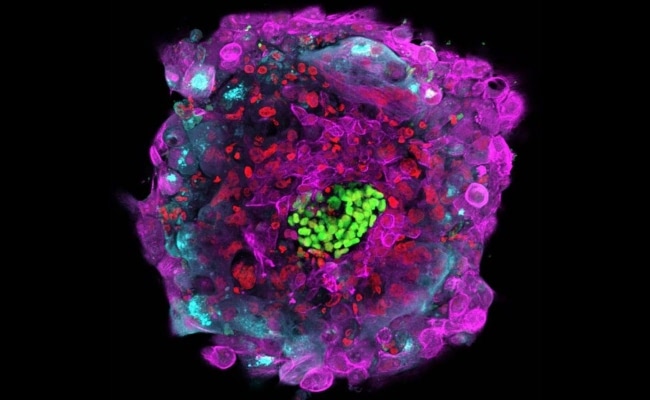A team of American and British biologists has successfully kept a human embryo alive in the lab for 13 days, breaking the previous record of nine days. This achievement has revealed some unknown details of the first stage of human development and has been a major step in understanding why so many failures occur during in vitro fertilization.
The same experiment also touches upon ethical dilemmas. About a dozen countries agreed to set 14 days as a limit for lab experiments involving a human embryo, implying that an embryo older than 14 days should be considered a human with rights. It is recognized that 14 days is when the fertilized egg starts to show a human form. It is also the time when the cells start to split and develop separately in case of twins. Researchers have been trying to push this limit further, stressing the potential benefits of this study: “We discovered, in the human embryo, a population of cells that nobody else has ever seen in any other animal. Not knowing that this is part of our anatomy - at the beginning of the 21st century - is a little bit, how shall I say, embarrassing” says Ali Brivanlou, professor at Rockefeller University and an expert in the field.
Even if scientists have to deal with opposing opinions, in particular from religious groups who want to stop the human embryo study altogether, the research for the creation of human life in the lab is proceeding. It would be a matter of time before this procedure will be in place and marvel our eyes. With more and more reproductive technologies already here (such as the creation of sperm and egg cells from skin cell), “childbirth” or “being pregnant” could assume radically different meanings in the future. Laws and regulations have to support these technologies, so they stay well controlled and safe for public access. But is public access to this technology what we want?
This article is part of the Artificial Womb research project by NNN. The goal of this project is to develop thought-provoking scenarios that facilitate a much-needed discussion about the way technology radically alters our attitude towards reproduction, gender, relationships and love in the 21st century. We highly value your feedback or input, contributions can be sent to womb@nextnature.net.
Image: Nature

Share your thoughts and join the technology debate!
Be the first to comment